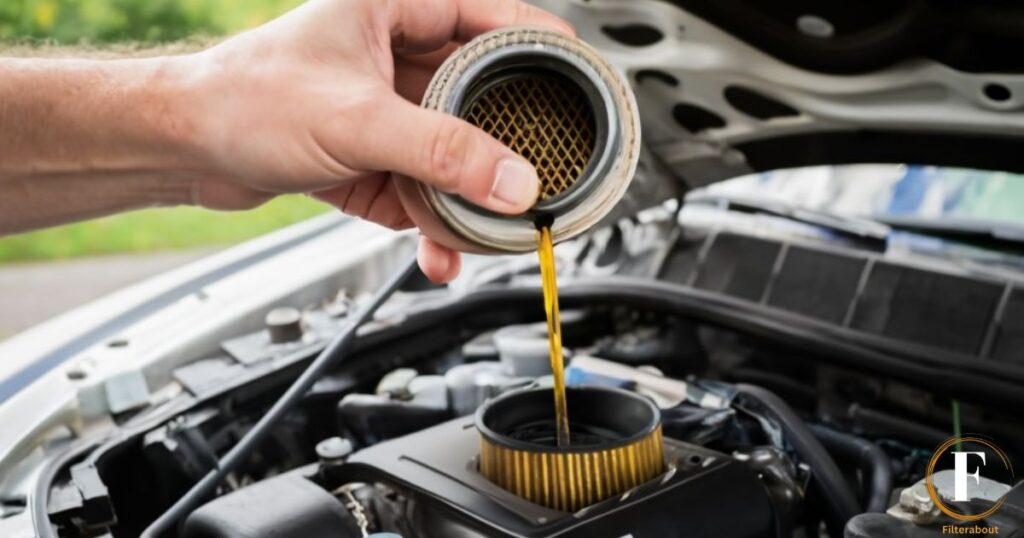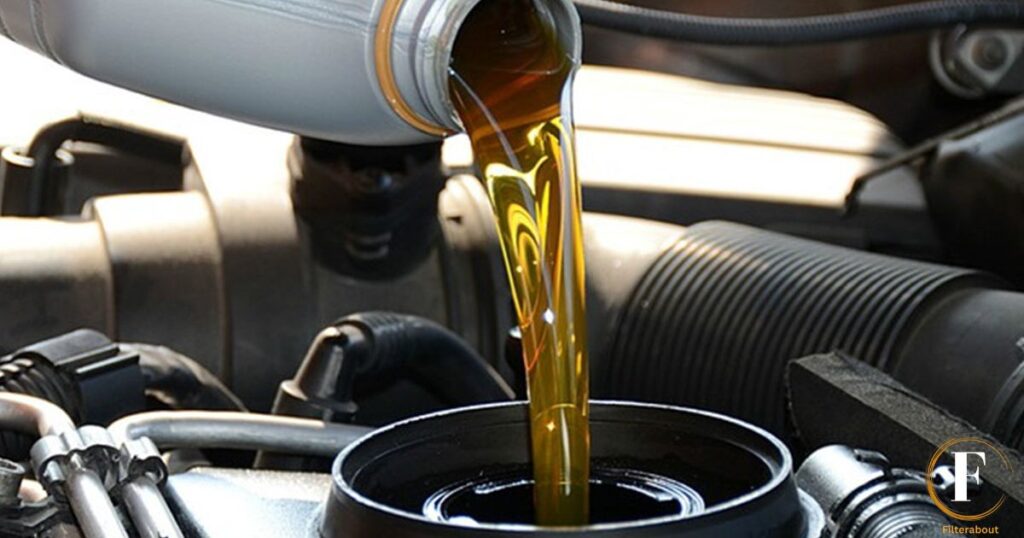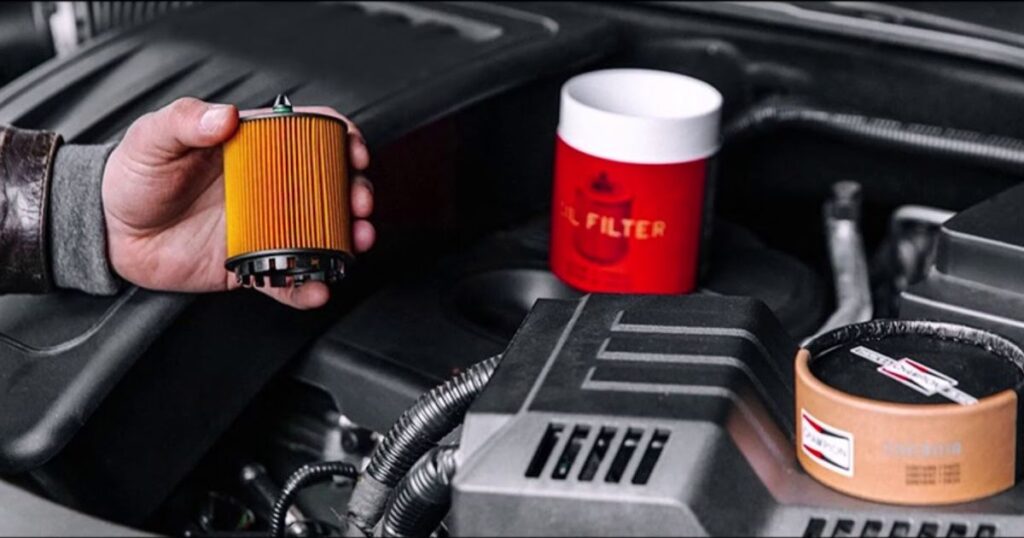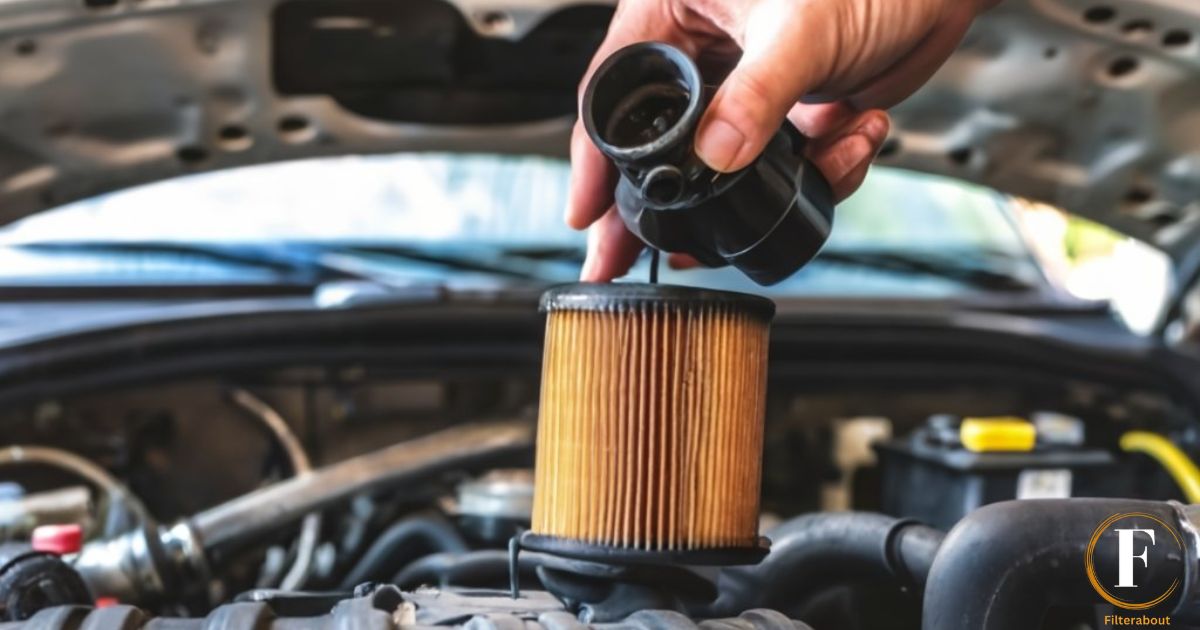An oil filter is a crucial car component that cleans and removes impurities from the engine’s oil ensuring smooth operation. It helps protect the engine by trapping dirt debris and contaminants preventing damage and maintaining optimal performance.
Ever wondered can I change the oil filter without changing the oil? It’s a common question. While it might seem like a quick fix it’s crucial to know that the oil and filter are a team. Changing only the filter may not be enough risking engine issues. To ensure your engine’s health stick to regular oil and filter changes for optimal performance.
Changing the oil filter without changing the oil is not recommended. The filter traps contaminants and reusing it with old oil can harm your engine. For optimal performance change both the oil and filter together during regular maintenance.
How To Change The Oil Filter Without Draining Oil?
Changing the oil filter without draining the oil is a practical approach for those who want to minimize the mess and save time during routine maintenance. To begin locate the oil filter beneath your vehicle.
You can find it near the oil pan or along the engine block. Once identified use an oil filter wrench to loosen and remove the filter. It’s essential to position a drain pan beneath the filter to catch any residual oil that may drip during the process.
To change the oil filter without draining the oil employ a quick and efficient method. Before removing the old filter completely tilt it slightly to the side to minimize oil spillage. Swiftly replace it with a new filter ensuring it’s properly lubricated with fresh oil. Tighten the new filter securely using the oil filter wrench.
This method helps maintain the oil level in the engine reducing the need for a complete oil change while still ensuring a vital component of the system is refreshed. In summary, changing the oil filter without draining the oil is a convenient solution for those seeking a cleaner and faster maintenance routine preserving the engine’s overall health.
For a hassle-free Change Oil Filter process always use the appropriate tools such as an oil filter wrench and have a drain pan ready. By following this approach you can efficiently replace the oil filter keeping the oil in your engine relatively untouched.
This method is particularly beneficial for those who perform regular maintenance and want to extend the life of their engine without the need for a full oil change. Remember to dispose of the old filter properly and recycle used oil at designated facilities to contribute to environmental conservation.
Oil Is Crucial And Changing The Filter Is Just Part Of The Process

- Understanding the Role of Oil: Recognizing that oil is a critical component in machinery, serving as a lubricant to prevent friction and ensure smooth operation.
- Importance of Oil Filters: Acknowledging the vital role of oil filters in trapping contaminants and impurities, preventing them from causing damage to the engine.
- Regular Maintenance: Emphasizing the necessity of regular maintenance, including oil changes and filter replacements, to sustain engine health and performance.
- Preventing Wear and Tear: Highlighting how neglecting the oil change process can lead to increased friction, and wear and tear, compromising the efficiency of the engine.
- Impact on Fuel Efficiency: Understanding that a well-maintained oil and filter system contributes to improved fuel efficiency, reducing operational costs over time.
- Technological Advances: Acknowledging the ongoing innovations in oil filtration systems, showcasing the dynamic nature of the maintenance process.
- Proactive Care: Stressing the importance of proactive care in ensuring the longevity and optimal functioning of machinery, reinforces the idea that changing the oil filter is a fundamental aspect of this care.
What Happens If I Change Oil But Not Oil Filter?
When you change your car’s oil but neglect to replace the oil filter, you may compromise the overall effectiveness of the oil system. The oil filter plays a crucial role in maintaining the quality of the engine oil by trapping contaminants and debris that accumulate over time.
If you skip changing the oil filter, these particles can continue circulating in the engine leading to increased wear and tear on critical engine components. Over time the oil may become saturated with impurities, reducing its ability to lubricate the engine effectively.
Regularly changing both the oil and the oil filter ensures optimal engine performance and longevity. The oil filter acts as a defense mechanism preventing harmful particles from causing damage to the engine.
Without this protective barrier, the engine’s internal parts may experience accelerated wear, potentially leading to costly repairs. Therefore it is essential to prioritize the simultaneous replacement of both the oil and the oil filter during routine maintenance to maintain the health of your vehicle.
To maximize the benefits of an oil change remember to change the oil filter as well. A comprehensive approach to maintenance including the regular replacement of both oil and the oil filter promotes a cleaner and more efficient engine contributing to a smoother driving experience and extending the lifespan of your vehicle.
So make it a habit to change oil filter along with the oil to ensure your engine’s longevity and optimal performance.
Do I Need To Change My Oil Filter Every Oil Change?

| Step | Question | Answer |
| 1 | How often should I change my oil filter? | It is recommended to change your oil filter every time you change your engine oil. |
| 2 | Why should I change the oil filter? | Changing the oil filter helps remove contaminants and debris, ensuring clean oil circulates. |
| 3 | Can I change the oil filter less often? | While some filters may last longer it’s generally advisable to stick to the oil change interval. |
| 4 | What happens if I skip oil filter changes? | Skipping oil filter changes may lead to reduced engine performance and increased wear over time. |
| 5 | How does a dirty filter affect the engine? | A dirty filter can allow contaminants to circulate, potentially causing engine damage and wear. |
| 6 | Are there exceptions to changing filters? | In some cases, high-performance engines or special filters may have different replacement intervals. |
| 7 | Can I change the oil but not the filter? | Changing only the oil and not the filter is not recommended as it leaves old contaminants in place. |
| 8 | What’s the overall importance of filters? | Regular filter changes contribute to a healthier engine, improved fuel efficiency, and longevity. |
Can You Use The Same Oil Filter After An Oil Change?
After completing an oil change, it is generally recommended to replace the oil filter as well. The oil filter plays a crucial role in trapping contaminants and debris that accumulate in the engine oil over time.
Reusing the same oil filter after an oil change may compromise its effectiveness and hinder its ability to filter out impurities efficiently. Therefore, it is advisable to change the oil filter along with the engine oil to maintain optimal engine health.
The oil filter’s primary function is to keep the engine oil clean by capturing particles and preventing them from circulating through the engine. Over time, these filters can become clogged with debris, reducing their filtering efficiency.
Reusing an old oil filter may lead to decreased performance and potential damage to the engine due to inadequate filtration. To ensure the longevity and proper functioning of your engine, it is a good practice to invest in a new oil filter each time you change the oil.
While it may be tempting to reuse the same oil filter to save costs it is not recommended for optimal engine maintenance.
Changing the oil filter during an oil change is a simple yet essential step in preserving your engine’s health and performance. So, make sure to prioritize changing Oil Filter as part of your routine maintenance to keep your vehicle running smoothly.
Should You Change The Oil Or Filter First?

When it comes to routine vehicle maintenance, the question of whether to change the oil or the oil filter first is a common one. Both components play crucial roles in maintaining the health of your engine. The consensus among automotive experts is that it’s best to change the oil filter first before replacing the oil.
The reason behind this is that when you remove the old oil filter, any debris or contaminants it contains won’t flow back into the engine. Changing the filter first helps ensure that the new oil stays cleaner for a longer period, promoting better engine performance and longevity.
Changing the oil filter is a relatively straightforward process that can be done using basic tools. Once the old filter is removed, it’s important to inspect the filter housing for any residual gasket material and clean it thoroughly before installing the new filter.
After changing the filter, the next step is to drain the old oil. This sequence ensures that the engine receives a fresh filter to capture contaminants before introducing the new, clean oil.
While opinions may vary, a common and recommended practice is to change the oil filter first, followed by draining and replacing the engine oil.
This approach helps maintain a cleaner engine and optimizes the performance of both the filter and the fresh oil. Regularly changing both the oil and filter at recommended intervals is essential for preserving the health and efficiency of your vehicle’s engine.
Can I Change My Filter At Home?
Here’s a brief overview:
Changing your air or water filter at home is a simple and essential maintenance task that helps ensure the efficiency and longevity of your appliances. Air filters are commonly found in heating ventilation and air conditioning (HVAC) systems while water filters are used in refrigerators faucets or filtration pitchers. Regularly replacing these filters can improve air quality reduce energy consumption, and enhance the taste and purity of your water.
To change an air filter, locate the filter compartment in your HVAC system near the air handler or furnace. Turn off the system remove the old filter and replace it with a new one of the same size and type. Most air filters have arrows indicating the airflow direction so be sure to install the new filter with the arrows pointing in the correct direction.
Changing a water filter depends on the appliance or system it’s used in. For a refrigerator, follow the manufacturer’s instructions to locate and replace the water filter. Faucet filters can often be twisted off and replaced while pitcher filters typically involve removing the old cartridge and inserting a new one. Regularly changing filters at home ensures optimal performance and maintain a healthy environment.
Frequently Asked Questions
Can an oil filter last 10,000 miles?
Yes, some high-quality oil filters are designed to last up to 10,000 miles, provided they meet the manufacturer’s specifications.
Is it OK to change oil every 2 years?
Changing oil every 2 years is not advisable. Even if a vehicle is not driven much, oil can degrade over time.
How do I know if my oil filter is bad?
Signs of a bad oil filter include low oil pressure, metallic noises, dirty or dark oil, and engine performance issues.
Conclusion
The question of whether one can change the oil filter without changing the oil is a topic that sparks debate among automotive enthusiasts. While it is technically feasible to replace the oil filter independently it is not advisable for optimal engine performance and longevity. Can I change oil filter without changing oil? The oil filter plays a crucial role in removing contaminants from the oil, ensuring a clean and smooth operation of the engine. Changing the filter alone does not address the gradual breakdown of oil properties accumulation of debris and the impact of heat on its lubricating abilities.
Neglecting regular oil changes may lead to diminished engine efficiency increased wear and tear and potentially costly repairs. Therefore, it is essential to adhere to recommended maintenance schedules, encompassing both oil and filter replacements. In the realm of automotive care, the adage holds Perhaps but for the sake of your engine’s health, it’s wiser to embrace the holistic approach of simultaneous oil and filter changes.

Alexander Quinn is the author behind Filterabout.com. Known for expertise in diverse topics, Quinn’s content on the website reflects a versatile knowledge base catering to various interests.



![Jynxzi Age, Net Worth, Career[2024]](https://filterabout.com/wp-content/uploads/2024/05/Who-Is-Shanin-Blake-Age-Wiki-Parents-Dating-Net-Worth-300x148.jpg)
![Jynxzi Age, Net Worth, Career[2024]](https://filterabout.com/wp-content/uploads/2024/05/Jynxzi-Age-Net-Worth-Career2024-300x148.jpg)


![Kutty Surumi Net Worth, Bio, Age[2024]](https://filterabout.com/wp-content/uploads/2024/05/Kutty-Surumi-Net-Worth-Bio-Age2024-300x148.jpg)



![Jynxzi Age, Net Worth, Career[2024]](https://filterabout.com/wp-content/uploads/2024/05/Who-Is-Shanin-Blake-Age-Wiki-Parents-Dating-Net-Worth-150x150.jpg)